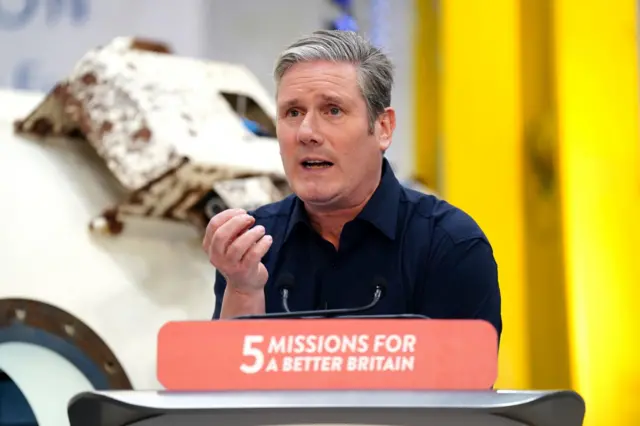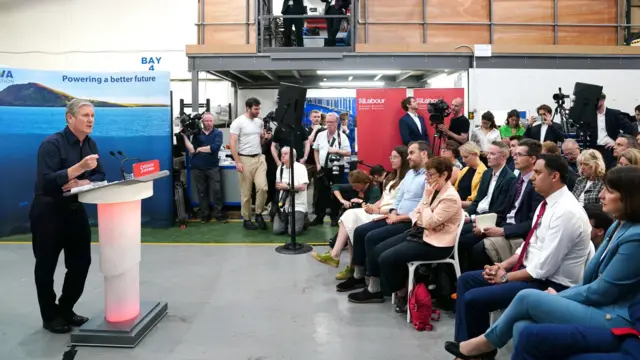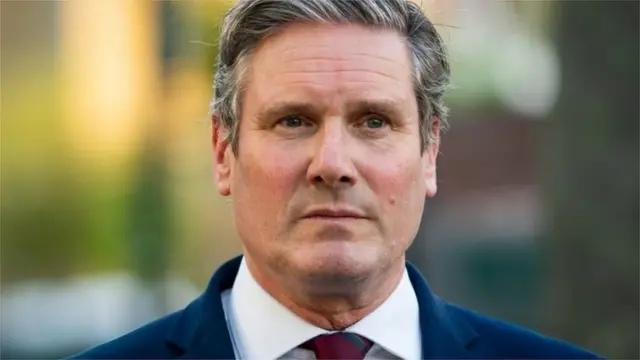New home-grown energy company to be based in Scotlandpublished at 11:27 British Summer Time 19 June 2023
The "centre-piece" and "embodiment" of Labour's priorities will be a new home-grown energy company, Sir Keir says, a benefit enjoyed by Denmark and Sweden.
"If there is money to be made from our resources, it must serve the British people, must invest in our communities, and create British jobs," he maintains.
The Labour leader says at the moment, Malaysia and the city of Munich own more of Britain's offshore wind assets than we do.
A "proper national champion", Great British Energy, will be publicly-owned and "be a shared project owned by all four nations on these islands," he says.
It will be "a national institution, a common cause" that will be "owned by the British people, shared by the British people".
Because of "Scottish ingenuity", he adds, it will be based in Scotland.





